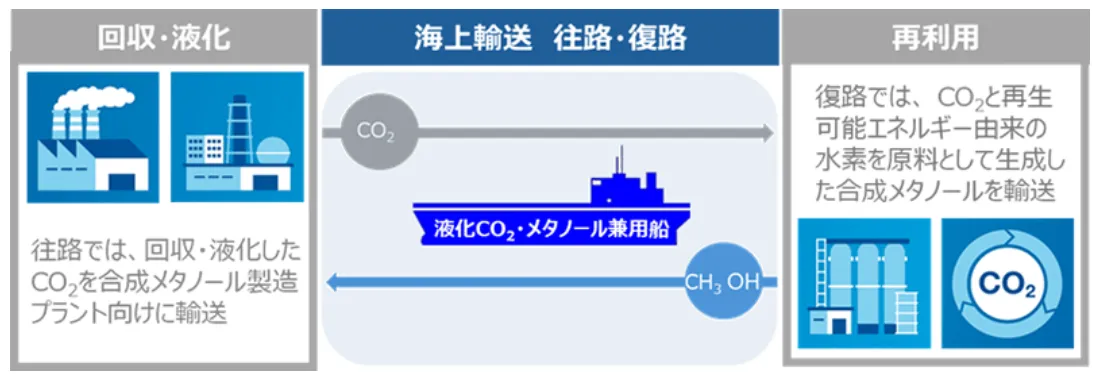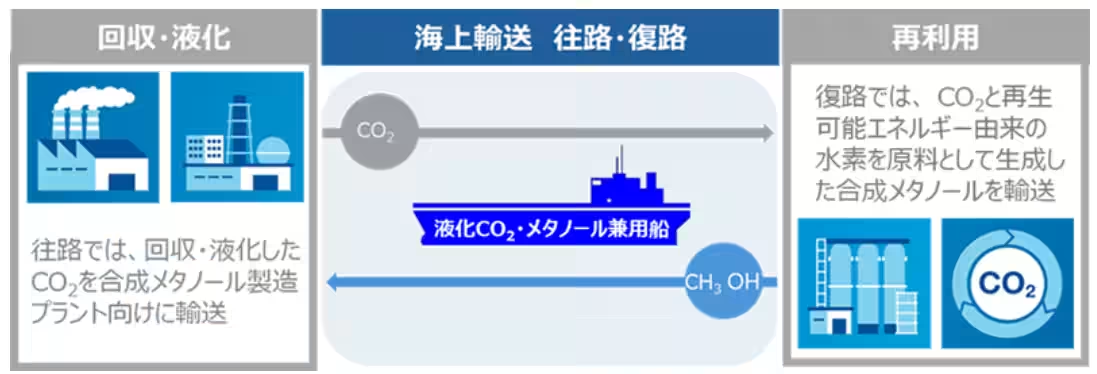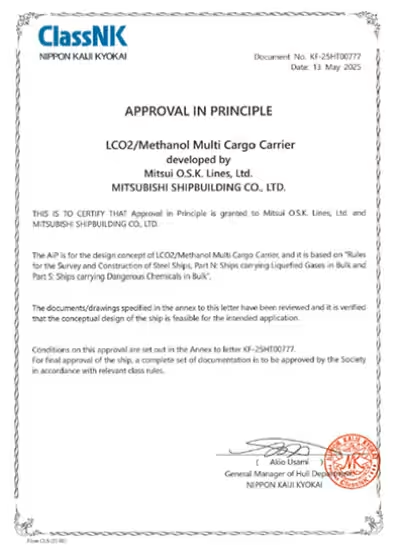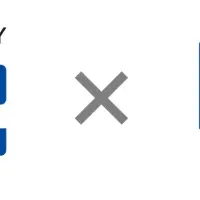

MOL and Mitsubishi Heavy Successfully Obtain AiP for World’s First CO2 and Methanol Dual-Fuel Transport Vessel
Pioneering Development of Dual-Fuel Transport Vessel
Mitsui O.S.K. Lines (MOL), led by President Takeshi Hashimoto, and Mitsubishi Shipbuilding Corporation, under President Shin Ueda, recently achieved a significant milestone with their joint project aimed at decarbonization. They have received the Approval in Principle (AiP) from the Nippon Kaiji Kyokai (ClassNK) for the world’s first transport vessel designed to ship both liquefied CO2 (LCO2) and methanol. This accomplishment not only showcases their innovative approach but also signifies a crucial step towards a more sustainable maritime industry.
The Significance of CO2 Utilization
The technology focusing on converting CO2 into fuel and chemical products, classified under carbon dioxide capture, utilization, and storage (CCUS), is gaining momentum in the industry. The initiative seeks to create a supply chain that utilizes captured CO2 as a raw material for producing synthetic methanol. This innovative synthetic methanol is expected to play a pivotal role in reducing carbon emissions from the maritime sector, marking a giant leap towards a carbon-neutral shipping industry.
MOL and Mitsubishi’s dual-fuel vessel is designed to facilitate the one-way transport of CO2 as a raw material on its outbound journey, while carrying back the produced synthetic methanol. Traditionally, vessels dedicated to transporting either material would sail empty on one leg of their journey, resulting in inefficient transport logistics. The dual-use strategy aims to eliminate empty runs, thus significantly enhancing overall transportation efficiency.
Commitment to Sustainable Development
Incorporating insights gathered from the recent concept study, both companies are determined to refine the vessel's design and address technical challenges as they move forward with its development. Collaborations with relevant businesses in the supply chain will also be essential in ensuring that this vessel reaches the production phase.
MOL is also investing in HIF Global LLC, which is spearheading the development, production, and transport of synthetic fuels and methanol in North America, South America, and Australia, showcasing their commitment to building a robust CO2 supply chain. This endeavor aligns with MOL Group’s Environmental Vision 2.2, aiming for net-zero emissions across the group by 2050. Their focus on the transport of CO2 and the production and supply of synthetic methanol is crucial in accelerating a low-carbon society.
Mitsubishi Heavy's Strategic Initiatives
Mitsubishi Heavy Industries is strategically reinforcing its energy transition initiatives. Mitsubishi Shipbuilding aims to contribute to the domestic and global maritime industry through advancements in shipbuilding and maritime engineering technologies. The collaboration with MOL illustrates the effectiveness of their partnership model, allowing for the integration of external expertise and fostering an environment ripe for innovation in building CCUS value chains. Mitsubishi Shipbuilding is committed to forging global partnerships that will help broaden knowledge and deliver greater technological advancements in shipping solutions.
Conclusion
With the receipt of the AiP, MOL and Mitsubishi Shipbuilding are not just setting benchmarks for maritime innovation but are actively contributing to the global movement towards sustainable practices in the shipping industry. As they progress with the development of the world's first CO2 and methanol dual-fuel transport vessel, they are emblematic of the mounting efforts needed to tackle climate change head-on within the transportation sector.


Topics Other)










【About Using Articles】
You can freely use the title and article content by linking to the page where the article is posted.
※ Images cannot be used.
【About Links】
Links are free to use.